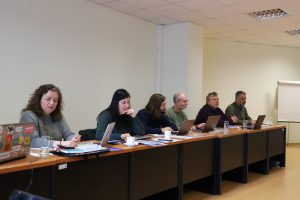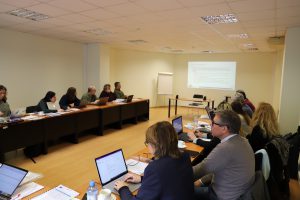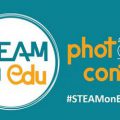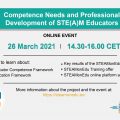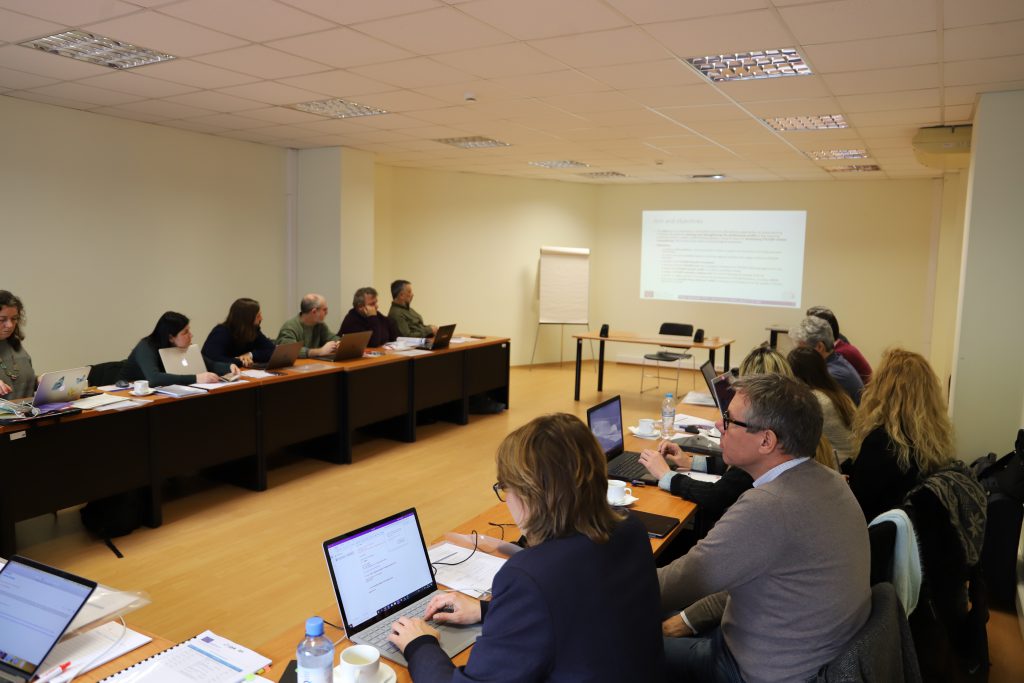
24 Jan STEAMonEdu – The Art of STEAM education
24 Jan, 2020
The Erasmus+ “Competence development of STE(A)M educators through online tools and communities” – STEAMonEdu project was launched in Athens on 21-22 January. The two-year project, implemented by the consortium of seven partners from five countries, aims to increase the adoption of and impact of STE(A)M education by investing in the community of stakeholders and professional development of educators.
Relevance
Demands and requirements for the workforce have been changing rapidly due to digital transformation, and the knowledge and skills acquired today will not be enough in future. At the same time, demand for STEM (Science, Technology, Engineering, Mathematics) skills is on the rise and expected to grow, and educators should take it into account. In the time when STEM has become one of the most important values in European education, it is particularly important for schoolteachers and trainers working in the informal education to acquire the skills that make them STEM and STE(A)M (including arts in STEM programmes) – ready.
How to achieve this? How to make teachers and trainers STE(A)AM-ready and help them develop and sustain students’ interest in STE(A)M? How to ensure the change when educators are eager to acquire new competences themselves, adopt the cross-disciplinary STE(A)M approaches and implement those in their work? And how to support educator preparation for this change?
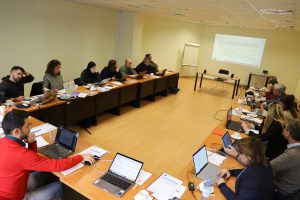 The consortium of seven partners from six countries have designed the STEAMonEdu project to address this challenge. We believe that if the change is carried through collaborative networks of educators, students, researchers, and other stakeholders, it is likely to be more successful.
The consortium of seven partners from six countries have designed the STEAMonEdu project to address this challenge. We believe that if the change is carried through collaborative networks of educators, students, researchers, and other stakeholders, it is likely to be more successful.
In this context, the STEAMonEdu project will research how to strengthen STE(A)M education and will provide an online environment to support the eco-system, that will be based on a bottom-up approach, where different stakeholders work collaboratively to design, develop and implement STEAM content, practices, projects, and policies. The project will develop and test the integrated modular training system that can be easily transferred and adapted at local, regional and national level. Read here to learn more about the project objectives and expected results
Partners
The partnership was set up considering the required expertise to realise the professional development of educators and includes:
- R&D state institute Computer Technology Institute and Press “Diophantus” (CTI) with its expertise in project management and in ICT solutions for training;
- four non-profit organisations experienced in developing methodologies, community outreach and training: 21st Century Competence Centre in Germany, Stati Generali dell’Innovazione (SGI) in Italy, EOS Foundation in Romania, Colectic in Spain,
- The Regional Directorate of Primary and Secondary Education of Western Greece (PDEDE) bringing expertise in design and evaluation of methodologies, and
- a European network – ALL DIGITAL with its experience in advocacy, dissemination, and exploitation.
How is the STEAMonEdu project different from many others? What are its innovations?
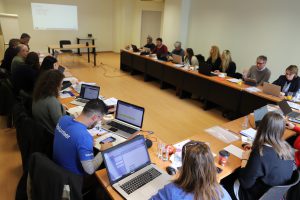 Here we are listing some of the innovations that the project consortium strives to implement:
Here we are listing some of the innovations that the project consortium strives to implement:
- The project will design a STE(A)M competence framework along with the DigComp for Edu framework
- STE(A)M educator profile will be described following the rules of ESCO framework
- The project will create a blended training course, including a MOOC based on the STE(A)M educator profile. Online activities will result in collaborative development of STE(A)M learning activities templates and projects, and STEM education policies;
- The project will design a STE(A)M education meta-data scheme to index and access all content and activities on the online platform. This will create the repository of STEAM methodologies, open educational resources, activities, practices, etc.
- The project will produce a STE(A)M readiness self-assessment tool, which will help educational organisations to identify the gaps in their STE(A)M education policies and design improvements
- The project uses a bottom-up approach, where all members of education community (teachers and trainers, education authorities, researchers, policy-makers, career consultants, content producers, etc.) are given the central role in collaborative designing and implementing policies.
Partners’ Meeting
The two-year project was kicked-off with the partners’ meeting on 21-22 January 2020 in Athens hosted by the lead partner CTI. During the meeting the partners reviewed all aspects of the project implementation. They explored the plans for the roll-up and promotion of the project, considered carefully how to develop the STEAM repository, the learning materials, how to build and grow the community of practice, and carry out the STEAM policy evaluation. The pilot partners agreed on a number of following steps, and it was a valuable and productive start to the project.
Follow the project news on social media with the hashtag #STEAMonEdu


